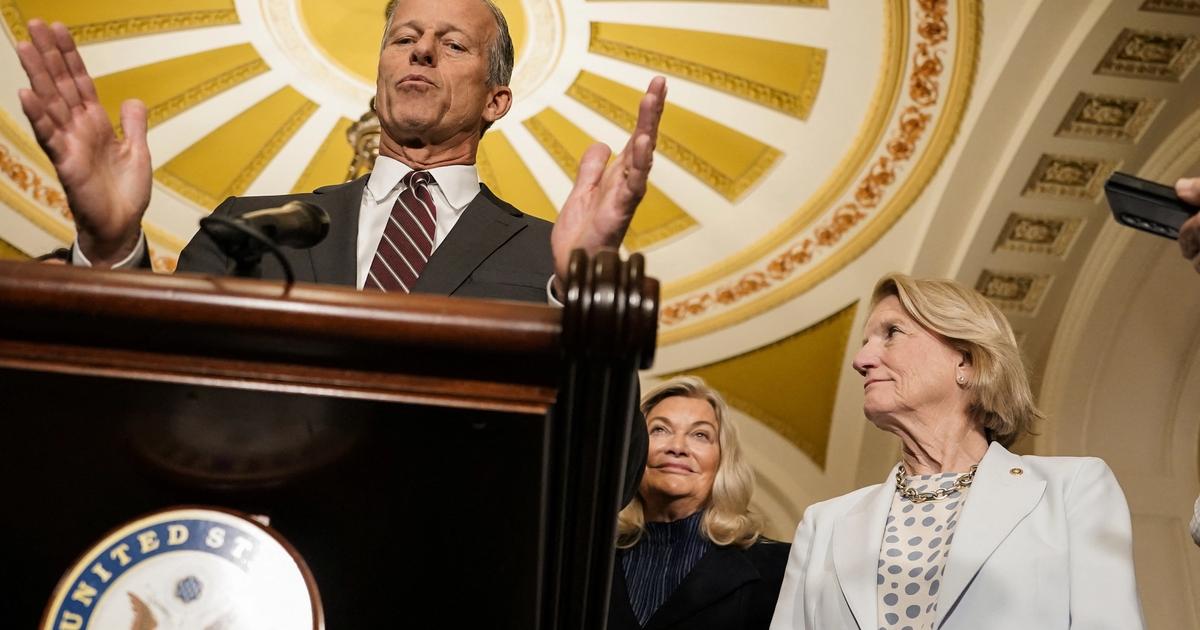It took cryptocurrency firms two tries to get the Senate to advance a plan they’ve long pursued to police stablecoins, a type of digital assets pegged to currencies like the dollar.
Now, a divisive policy fight over credit cards could derail the entire bill.
The retail and finance sectors have long clashed over legislation from Sens. Roger Marshall, R-Kan., and Dick Durbin, D-Ill., that would target credit card swipe fees by encouraging more competition. Retailers say the bill would bring down prices for consumers; Visa and Mastercard, as well as banks and credit unions, say it would force them to cull customers’ rewards.
And critics of the proposal are fighting hard against a new push to attach it to the Senate’s stablecoin bill.
“It’s awful policy,” said Sen. Thom Tillis, R-N.C. If the swipe fee measure got attached, he added, “I’d go from being a co-sponsor to trying to figure out how to tank the [stablecoin] bill. It won’t be a surprise to my colleagues.”
The competing interests — and their deep pockets — have for years divided the Republican Party deeply enough to ensure the swipe fee bill never received a roll-call vote. In one example of the complex politics at play, Vice President JD Vance signed on to the legislation while he was a senator — but later privately told lobbyists he would not try to advance it.
Marshall filed his measure as an amendment to the Senate’s stablecoin bill on Tuesday. But it’s not at all clear that he will push for a floor vote. And Durbin said he wasn’t sure if the swipe fee plan would get 60 votes, since it’s never seen floor action before.
“We haven’t decided what to do. We’re still measuring twice, before we cut once,” Marshall told Semafor on Wednesday. He said he didn’t want to discuss the amendment further because he hadn’t decided how to approach it.
Now, the crypto industry is quietly lobbying its allies on the Hill to block the amendment from getting a vote. A few within the industry counter that if the swipe fee bill got attached through a simple-majority vote, that could spur more Democrats to support the bill.
Durbin, who opposes the bigger stablecoin bill, said adding the credit card amendment “puts me on the spot, doesn’t it?”
But the crypto bill doesn’t have much room to lose backing: 69 senators voted to advance it Wednesday, and 60 senators must vote to pass it. That makes most in the industry wary of scaring off Republican lawmakers like Tillis. In the House, backers are hoping Financial Services Chair French Hill, R-Ark., pushes the legislation through unchanged.
Hill is a vocal critic of Marshall and Durbin’s measure and doesn’t seem to be changing his mind any time soon: He told Punchbowl News in February that he is “this one is not one where I would be inclined to change my long-stated view.”
“We’re trying to keep this as clean and expedient as possible,” Sen. Bill Hagerty, R-Tenn., one of the sponsors of the stablecoin bill, told Semafor Wednesday.
One crypto executive, who was granted anonymity to speak candidly, put the swipe fee question another way: “Why would we put our hand in the woodchipper?”










